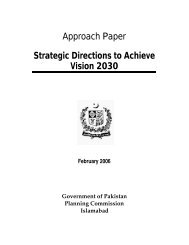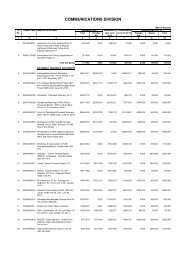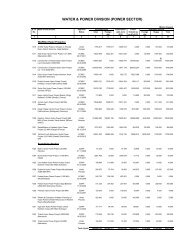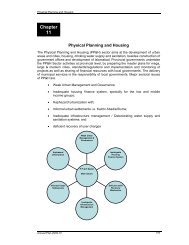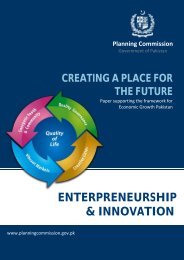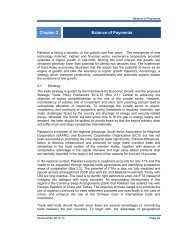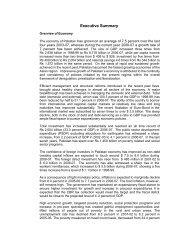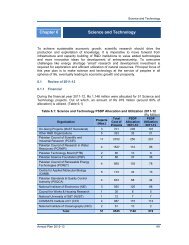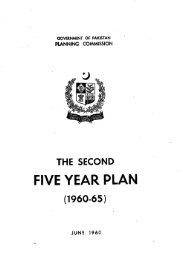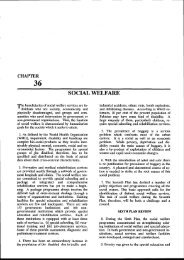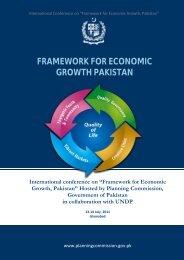Manual for Development Projects - Planning Commission
Manual for Development Projects - Planning Commission
Manual for Development Projects - Planning Commission
You also want an ePaper? Increase the reach of your titles
YUMPU automatically turns print PDFs into web optimized ePapers that Google loves.
Chapter-8<br />
(i) Project completion report.<br />
The a<strong>for</strong>ementioned documents <strong>for</strong>m the basis of the assessment of different project activities. The site<br />
visits to the project will also assist in the assessment of the quantitative aspects of a project and its effect/<br />
impact on the target group/beneficiaries. The following facts should be looked into in any evaluation<br />
exercise:<br />
i) Was the project properly conceived? Has it fulfilled its basic objectives? If not, what was wrong with the<br />
basic design?<br />
ii) Was the project adequately prepared? Were the <strong>for</strong>ecasts of output or benefits correctly made to a<br />
reasonable extent? Was the technical preparation adequate? How good were the original cost estimates? If<br />
there were deficiencies in preparation, how those were removed or could be made up?<br />
iii) Was the project implemented as per the plan? If not, was this because of its haphazard preparation or<br />
because of delays in (a) the authorisation procedure, (b) obtaining suitable funds, and (c) other reasons?<br />
What lessons could be learnt to improve the implementation of other projects?<br />
Feed-back <strong>for</strong> the Future<br />
Page 5 of 5<br />
8.7 Feed-back is the most important element of a systematic and integrated approach towards project<br />
appraisal, monitoring and evaluation. Essentially, it is the evaluation exercise which provides lessons <strong>for</strong><br />
the feed-back, because the main objective of such studies is to compare the actual outcome of the project<br />
with the projections made in its appraisal and then the examination of essential positive and negative<br />
effects of the project, providing important lessons <strong>for</strong> the future. The feed-back from evaluation is a basic<br />
requirement of the management. An evaluation without any direction or support from the management can<br />
hardly be meaningful. To promote feed-back from evaluation, it is necessary to (a) substantiate proper<br />
evaluation findings and pay proper attention to specific issues of substance, (b) establish a feed-back<br />
mechanism, preferably to the policy-makers and senior management, and (c) rely upon feed-back through<br />
<strong>for</strong>mal and in<strong>for</strong>mal arrangements. Feed-back from the evaluation is used <strong>for</strong> operational (mid-course<br />
corrections and follow-up action), analytical (improvement of project design, objectives etc.) and policy<br />
purposes (finding out the validity of a given development strategy etc.). To ensure that feed-back is used in<br />
systematic manner, there must be an adequate institutional mechanism <strong>for</strong> channelling the findings and<br />
recommendations to the appropriate decision-makers and managers <strong>for</strong> the necessary follow-up action. The<br />
managers and policy-makers should know how to guide and use evaluation <strong>for</strong> their needs.<br />
http://hd2/pc/popup/ch8_p.html<br />
9/23/2010



